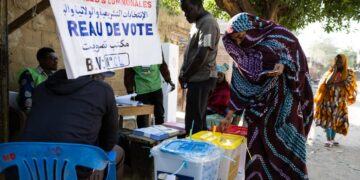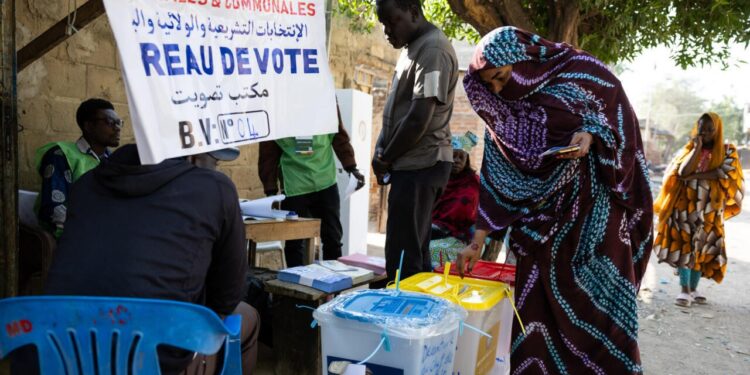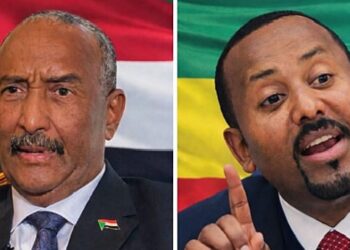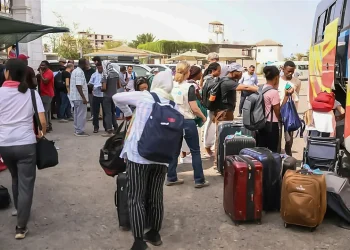Chadians are casting their votes in legislative, provincial, and local elections, described by the government as the concluding phase of a political transition following three years under military rule. Opposition groups, however, have refused to participate.
The absence of opposition candidates leaves the race open to allies of Marshal Mahamat Idriss Itno. He assumed power through a military takeover in 2021 and later secured his position through a presidential election in May, which critics claimed was riddled with fraud.
“It is better to stay at home,” said opposition leader Succes Masra during a lengthy Facebook live session on Saturday, where he condemned what he called a “system built on lies and electoral theft.”
“The fabricated results are already in the computers,” he stated.
On Saturday evening, the opposition Democratic Party of the Chadian People (PDPT) alleged that over a thousand ballots meant for the sub-prefecture of Bongor had disappeared. They urged citizens to “remain vigilant” and “disrupt the fraud mechanisms” allegedly orchestrated by the ruling MPS party.
Polling stations are open from 6 am to 6 pm (0500 to 1700 GMT) for the nearly eight million registered voters. The process is being overseen by foreign observers and representatives from different political groups.
As has been the practice in past elections, soldiers, police personnel, and nomadic communities began voting a day earlier on Saturday.
– ‘Bloodshed’ –
The elections are taking place amid ongoing security challenges from the Boko Haram insurgency in the Lake Chad region, the termination of a military pact with France, and accusations of Chad’s involvement in the neighboring Sudan conflict.
Authorities under Itno’s leadership have framed the polls as a crucial step toward restoring democratic governance.
At 40 years old, Itno assumed power in 2021 after the death of his father, Idriss Deby Itno, who ruled Chad for over three decades with an iron grip. The younger Itno later claimed a five-year mandate in a highly disputed May election.
Chad’s last legislative polls were held in 2011. Subsequent elections were repeatedly delayed due to threats from jihadist groups, financial constraints, and the coronavirus pandemic.
A transitional parliament of 93 members was appointed in 2021 through a presidential decree.
Opposition leaders accuse the current administration of intensifying its authoritarian grip. In his Saturday address, Succes Masra highlighted the “bloodshed” that occurred during opposition protests in October 2022.
Efforts by the ruling party to rally voter interest have been hindered by a media blackout. Journalists from online platforms are striking against imposed restrictions, while private media outlets have declined to cover the elections, citing the government’s failure to provide customary funding for such coverage.




































